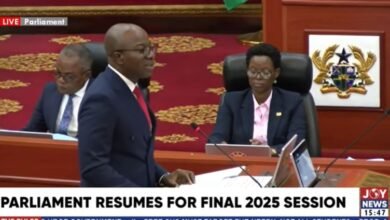Mahama Unveils Bold 24-Hour Economy Policy, Rollout Set For July

President John Dramani Mahama has announced that the government is set to roll out its flagship 24-Hour Economy Policy in July, with a focus on decentralised implementation and the transformation of the Volta Lake into a major national logistics corridor.
Speaking during a multi-sectoral engagement at the Jubilee House, President Mahama revealed that the final draft of the policy has been completed and is ready for execution.
“I have reviewed it, and I’m confident we now have a coherent and actionable framework to deliver results,” he said. “An effective catalyst for the 24-hour economy is a stable macroeconomic environment, which we are achieving through close coordination between the monetary and fiscal authorities.”
Institutional Framework and Secretariat
To coordinate the initiative, the government will establish a 24-Hour Economy Secretariat. President Mahama noted that efforts are underway to make it an independent authority, backed by legislation and reporting directly to the Presidency.
“To guarantee institutional stability, I’m working with Parliament to establish the 24-Hour Economy Secretariat as an independent authority,” he said.
Volta Lake Economic Corridor
A cornerstone of the policy is the creation of the Volta Lake Economic Corridor, which will reimagine the lake as a key transport and production zone. The plan includes:
- Cultivating over two million hectares of arable lakeside land
- Revitalising the fisheries sector
- Developing a network of industrial parks
- Investing in floating transport assets, lake ports, and long-term partnerships
“The lake will be activated as a transport highway, moving food, people, and goods more efficiently than our congested roads currently allow,” the President explained.
Focus Areas and Job Creation
The 24-Hour Economy Policy aims to drive job creation and inclusive growth by targeting priority value chains across all regions. These include:
- Agro-processing
- Pharmaceuticals
- Textiles
- Light manufacturing
- Tourism
- Digital services
- The creative economy
Each sector will receive tailored support to address specific bottlenecks, with a structured approach to value chain development.
Infrastructure and Financing
Infrastructure development under the policy will be led by the Ghana Infrastructure Investment Fund, which will oversee:
- Construction of industrial parks
- Creation of logistics hubs
- Upgrades to transport links
To support financing, the Development Bank of Ghana and the Venture Capital Trust Fund will provide targeted funding for SMEs, cooperatives, and agribusinesses.
Land and Skills Development
The government also plans to develop local land banks that are zoned, titled, and investment-ready, aimed at reducing delays and uncertainty for investors.
The Aspire24 sub-program will train young people for shift-based work, digital roles, and entrepreneurship.
Decentralised Implementation
President Mahama emphasised that the policy will be decentralised, with each district forming its own implementation task force, aligned with local economic development policies.
“This is not a top-down model,” he stressed. “Each region will define and lead its path of industrial transformation based on its natural comparative advantages.”
Public Consultation and Official Launch
The draft policy document will be released for public consultation on Tuesday, ahead of the official launch in July—likely on Republic Day, a date President Mahama described as symbolically fitting for such a bold national initiative.
“This is no longer just a vision. It is a structured, sequenced, and inclusive plan, and its implementation is beginning.”
A Central Pillar of Mahama’s Agenda
The 24-Hour Economy Policy was a key campaign promise of President Mahama during the 2024 elections and is now positioned as a central pillar of his administration’s economic transformation agenda.
Credit: Clara Seshie




